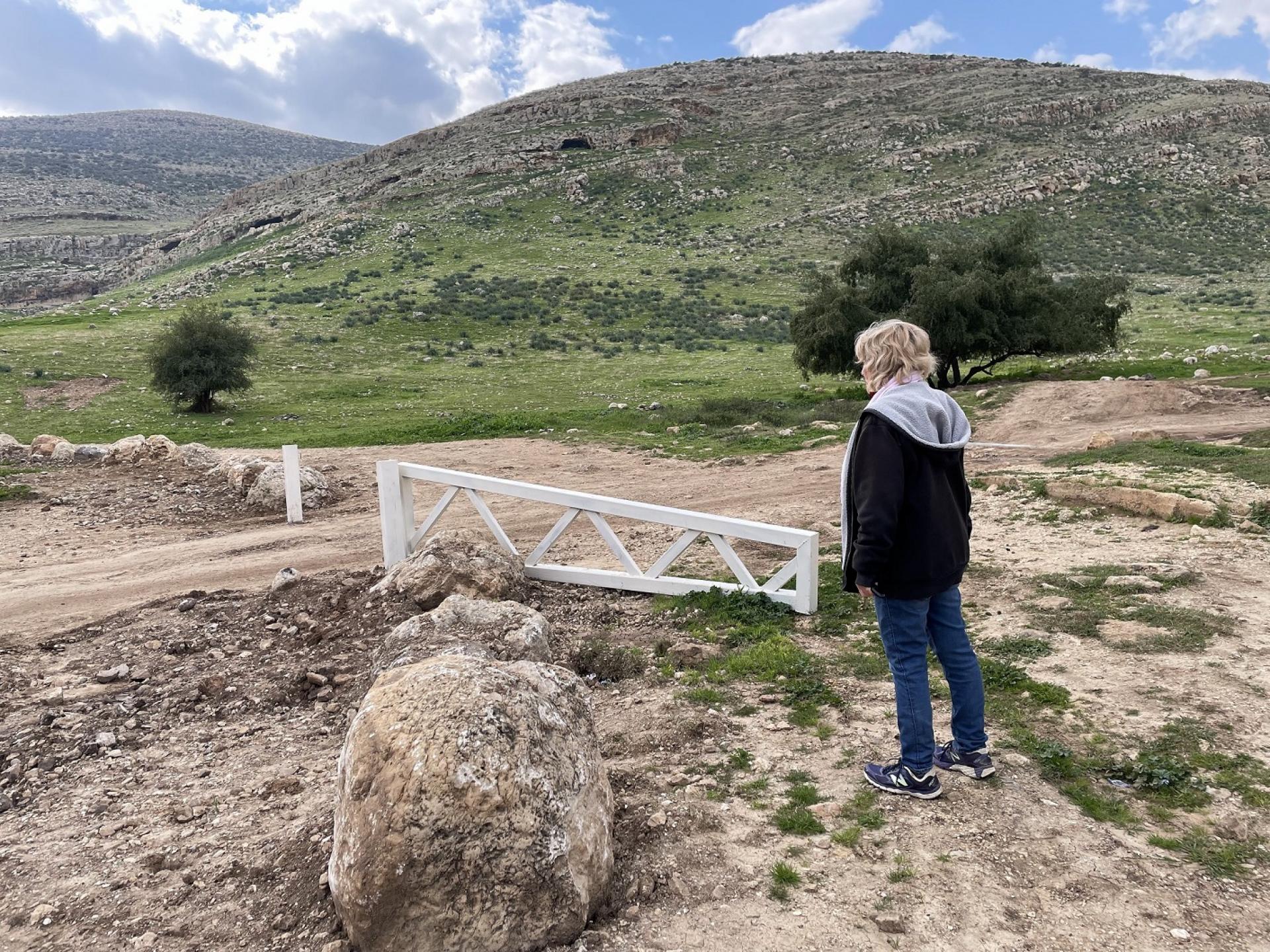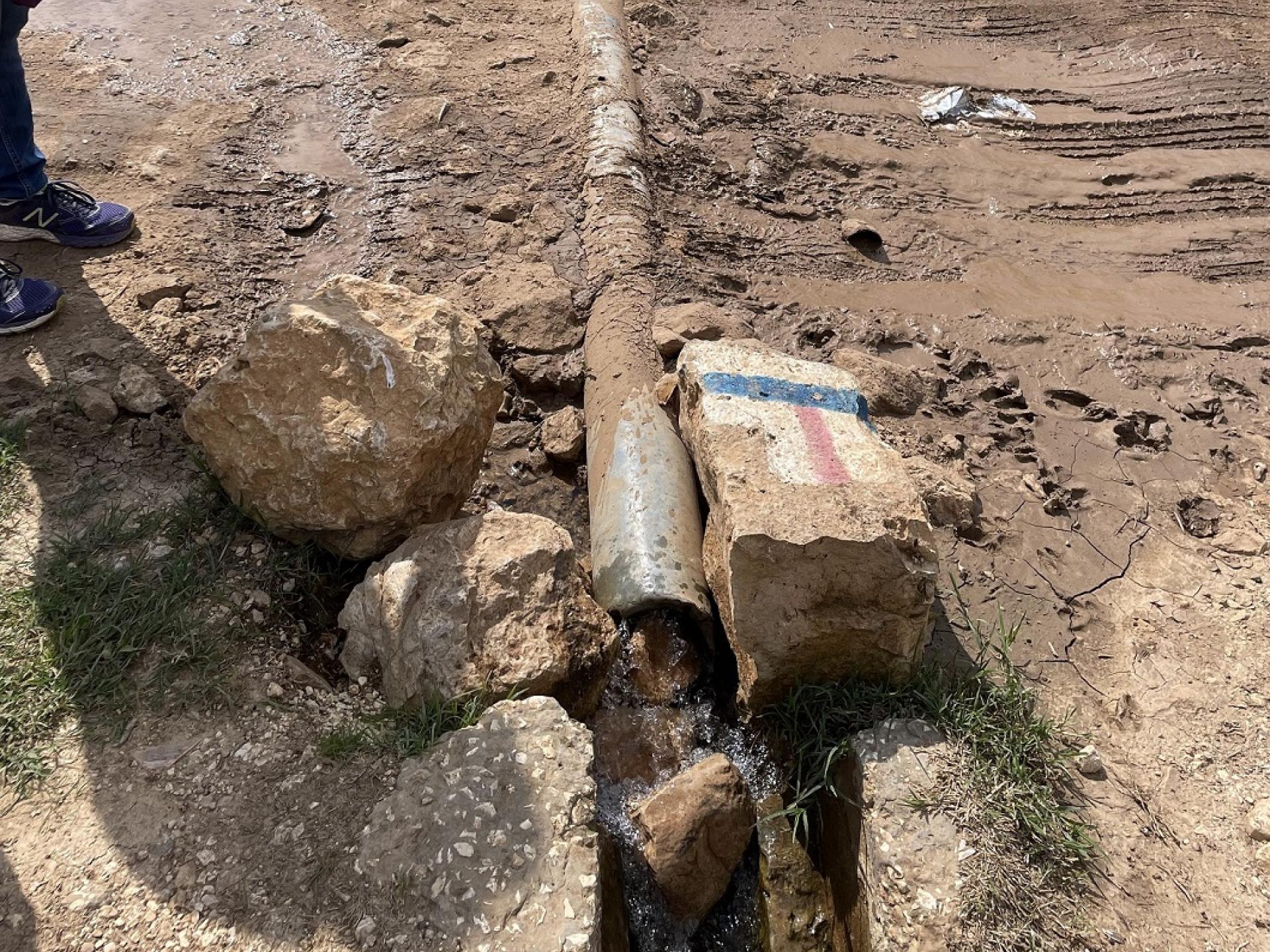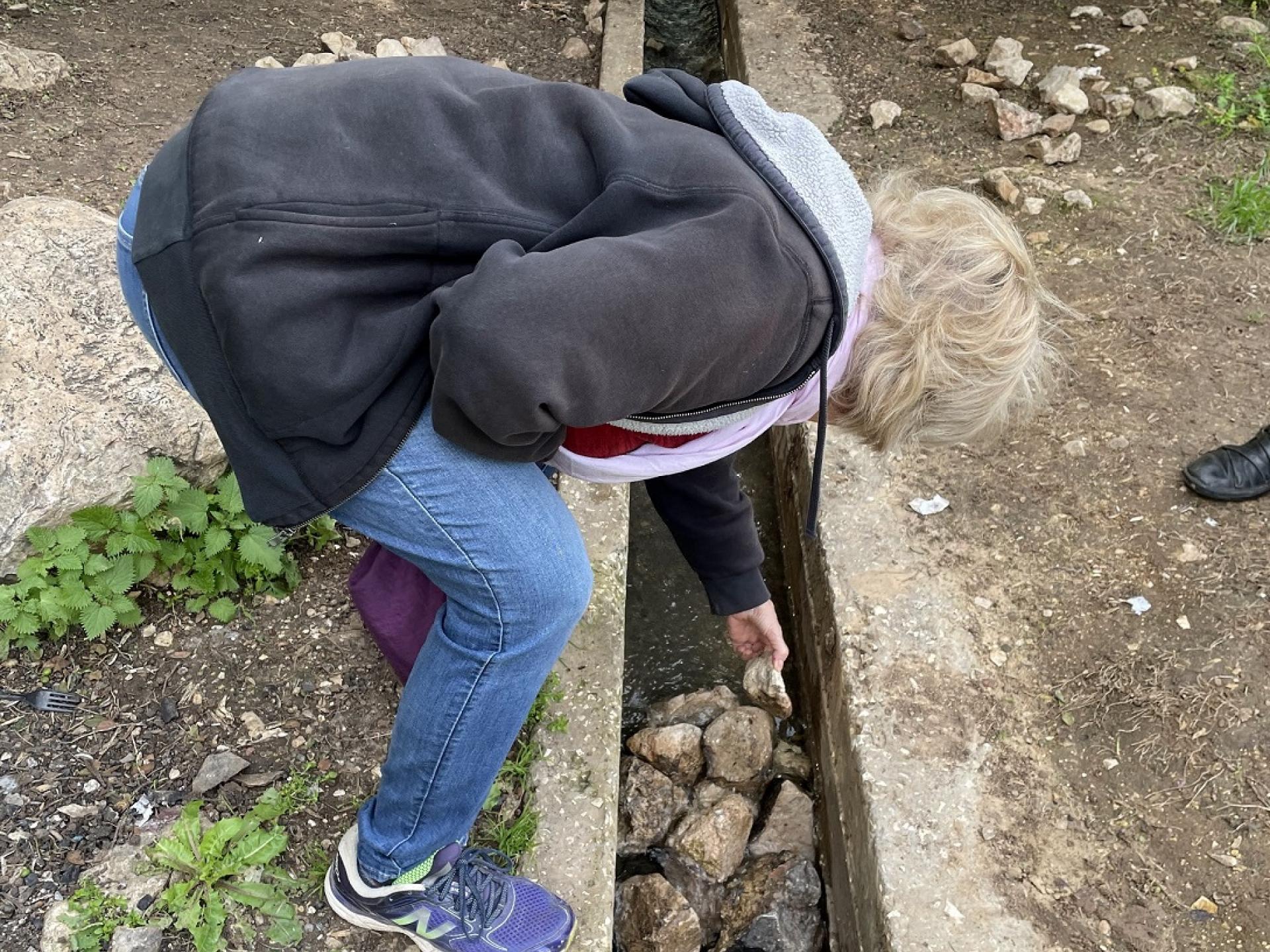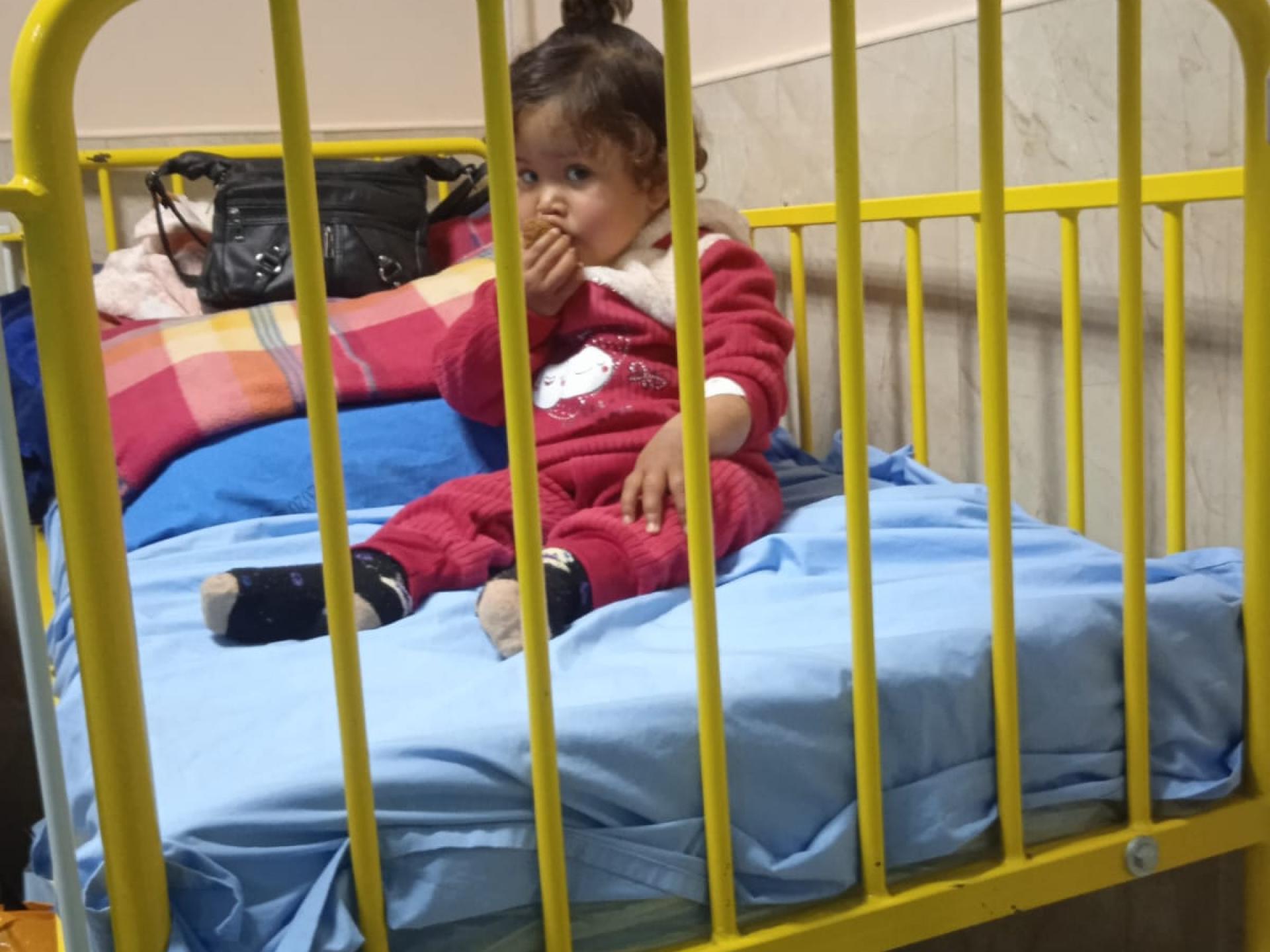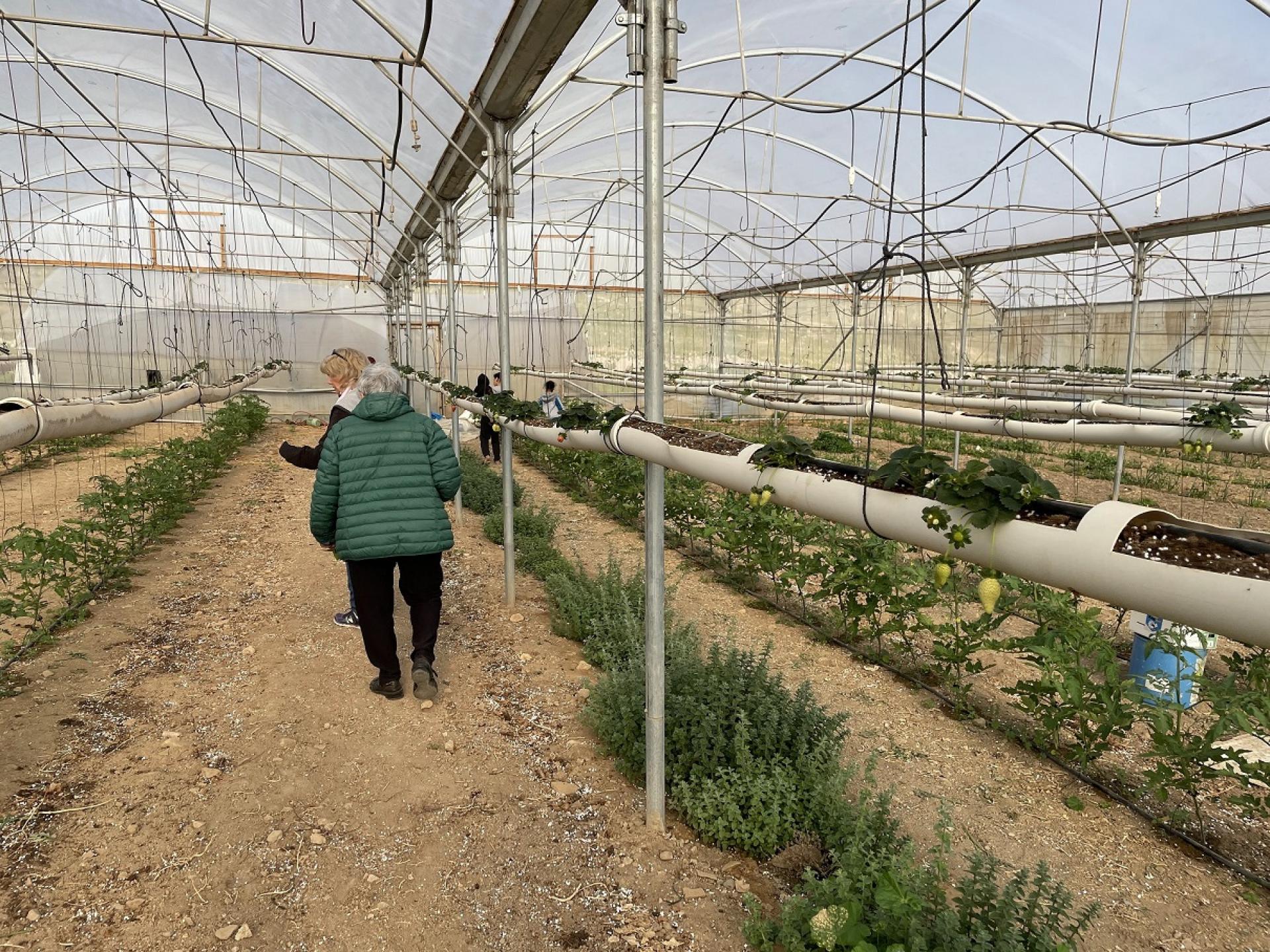Fassayil, Jordan Valley
Fassayil Springs – We saw several flocks near the road leading to the springs to about half a kilometer from the springs themselves and on the hills north of the road. The shepherds don’t dare graze their flocks in the rest of the area. We stopped not far from one of the flocks and the shepherd, a 14-15-year-old boy galloped on his donkey toward us. “Razale (Tzvia)?” He asked. Her name had reached him, although we did not know him. He and other shepherds we met repeated the story about the colonist from the outpost “Mal’achei Ha-Shalom” on the range, quite far from the springs, who comes and beats them up every day, threatens them and tries to run the animals over.
The faucet that used to water the flocks at the entrance to the springs track is still broken, the trough is gone (stolen by the criminal bunch from the colonist outpost) and it is not clear how the Fassayil villagers get their water. They used to buy water from a tanker tied to a tractor that would take its water from this faucet. The Fassayil villagers receive water only once in 4 days from the Israeli water company Mekorot. It is not enough for these large families and their livestock.
At the springs themselves, at the entrance to the nature reserve, there is a new gate, opened, but if the gate is there it could also be closed. Is a nature reserve not a public space and should not be closed to the public at large?
The open ditches that take water to the Palestinian pipe (which is still whole after 3 times when Mistaklim la-kibush (Israeli peace organization) fixed it and the colonists broke it again and again) are blocked again with stones (courtesy of the colonist outpost youth), so we took the stones out and threw them far away (which will not prevent them from blocking the ditches again).
Some of the ditch, the part where cars used to pass, has been closed from above with plastic. We don’t know who did this, but it prevents pollution of the water and is therefore welcomed.
Near the spring we met 3 men from Duma village. They said they work in Jericho and on their way home they stop to breathe a bit at the springs. One of them picked and peeled and then gave each of us some nettles which were very tasty.
We continued to visit the Ka’abaneh family, the young couple whose home was demolished several times and who were expelled at night from Al Hadidiya, and consequently were hurt in a traffic accident, their 40-day-old baby daughter was killed and the mother was very badly injured. Two years ago they had another baby daughter who is paralyzed in her lower body. The family loves the girl but does not know how to lessen her suffering. Financially they cannot afford treatment. Right now the girl is undergoing treatment in a Toubas hospital, aided by the Turkish government. With the help of Physicians for Human Rights and donations we have received from wonderful people we shall help the family diagnose and consistently treat the girl in order to improve her condition.
daughter was killed and the mother was very badly injured. Two years ago they had another baby daughter who is paralyzed in her lower body. The family loves the girl but does not know how to lessen her suffering. Financially they cannot afford treatment. Right now the girl is undergoing treatment in a Toubas hospital, aided by the Turkish government. With the help of Physicians for Human Rights and donations we have received from wonderful people we shall help the family diagnose and consistently treat the girl in order to improve her condition.
We then visited the family of old Zob’a. A month ago the Israeli army confiscated his tractor and plow while he was plowing the ground next to his home. The army’s pretext was that this is a firing zone. Right next to his home = a firing zone?? No maneuvers have ever been conducted there and the ground belongs to Zob’a, legally. He showed the soldiers his documents. Callousness has won over humaneness and both tractor and plow are gone – the tractor that brings water to Zob’a and his wife, his two mentally disabled daughters, his son, daughter-in-law and their four children. Zob’a must pay 7,200 NIS in order to get back his ability to bring water, which is denied him (he has a well in the yard but is not allowed to get water from it). The woman took us to the greenhouse where his son grows strawberries, peas, garlic and parsley.
Beautiful. And I couldn’t stop thinking that the Israeli army might arrive tomorrow, and just like that, arbitrarily destroy this beautiful project in which the family invests its soul…
They also grow bees, and in a month will be getting honey from the wildflowers that the army has not prevented from blooming throughout the Valley. We have tasted it, wonderful honey. Two years ago I had it checked and was told that it is pure bees honey.

